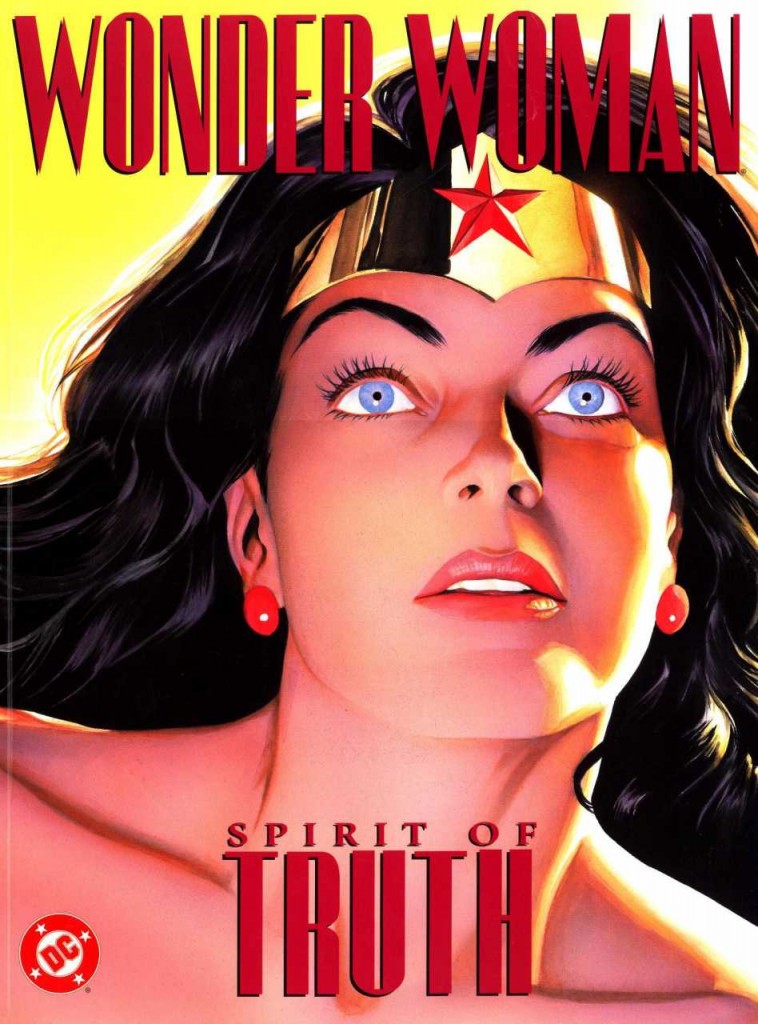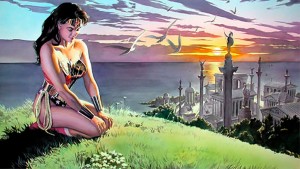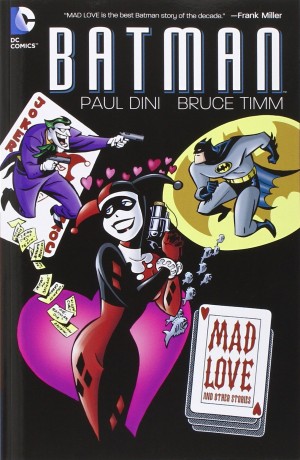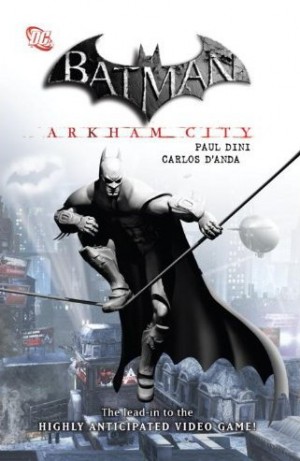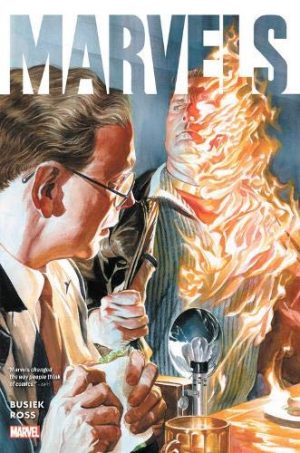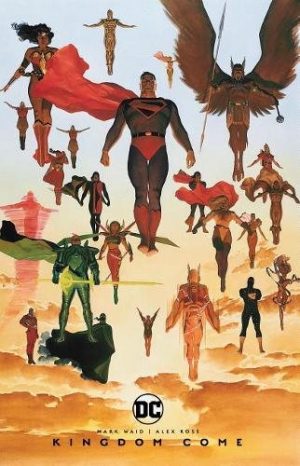Review by Frank Plowright
This slim, but significantly oversized graphic novel was the fourth in which creators Paul Dini and Alex Ross investigated DC’s iconic superheroes. As with the others, the plot turns on the experience of internal difficulty, in Wonder Woman’s case the problem of convincing the wider world of her honourable intentions when she’s obviously so powerful. Her actions helping those in need prove this time and again, but Dini exploits the fear of anyone with superhuman abilities, no matter how benign they seem. Further frustrations stalk her role as an ambassador, with political engagement rarely resulting in the honesty she can enforce with her magical lasso.
For all of Dini’s clever use of then contemporary real world events, it’s Ross’ beautiful figurative art that’s the selling point. Ross bases his version of Wonder Woman on Lynda Carter, who embodied the character on TV during the 1970s, and depicts a glamorous and powerful woman in her traditional costume. There’s no copying from glamour magazines, as Ross has the integrity never to over-emphasise her endowments. His individual images are breathtaking, and although Spirit of Truth is produced as text and illustration rather than conventional comics, the illustrations have a continuity to them. Ross’ great skill is restoring the wonder to superheroes, which occurs via a photorealistic naturalism coupled with an astonishing eye for composition. Sixty pages may appear a short read, but that’s not the case as time and again the reading stops in admiration of another perfect picture. One trick he pulls off well is the use of Wonder Woman’s invisible plane.
Having chosen to reflect real world lies, incidents and diplomacy, Dini selects the frustrations well. Wonder Woman operates on a global scale, and while individual countries are never named, they’re obvious. Cultural differences and faiths are examined. Wonder Woman arrives in a predominantly Muslim country to help those being used as human shields preventing the bombing of weapons factories, but her revealing costume causes great offence to those she’s come to rescue. There’s a version of famous events in Beijing’s Tianamen Square, and other world ills such as the ivory trade and landmines feature.
For all the beauty of the art and a well-intentioned first person narrative highlighting problems there’s no political will to sort out, Spirit of Truth doesn’t quite gel. Ross exploits the wonder of superheroes, while Dini’s first person script simultaneously reduces Wonder Woman to mundane. This is the purpose, underlining we’re pretty much the same under the skin, but the investigation of doubt and straightforward exposition that form most of the narration becomes dull and repetitious, which is presumably not the intention.
Spirit of Truth can also be found along with other collaborations between Dini and Ross in World’s Greatest Superheroes, but this is a trade-off as that’s a conventional sized graphic novel.
